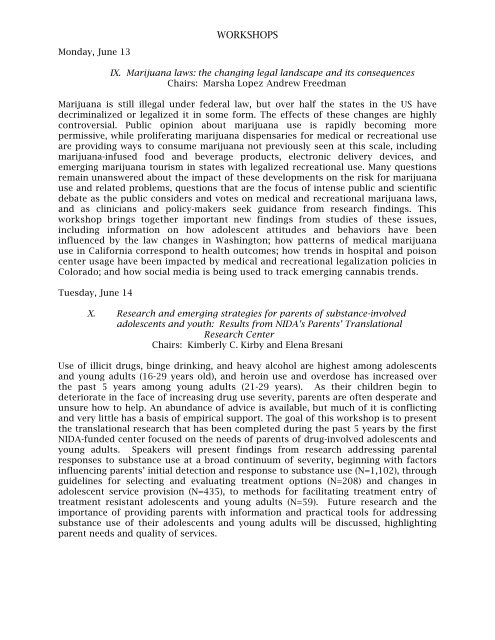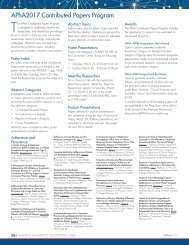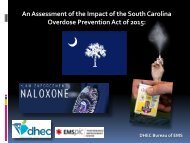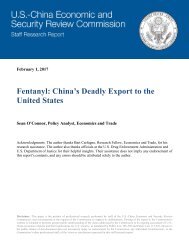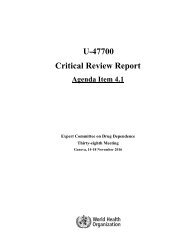CPDD 78th Annual Scientific Meeting Program
2016-78th-CPDD-Program-Book-6-07-16FINAL
2016-78th-CPDD-Program-Book-6-07-16FINAL
Create successful ePaper yourself
Turn your PDF publications into a flip-book with our unique Google optimized e-Paper software.
WORKSHOPS<br />
Monday, June 13<br />
IX. Marijuana laws: the changing legal landscape and its consequences<br />
Chairs: Marsha Lopez Andrew Freedman<br />
Marijuana is still illegal under federal law, but over half the states in the US have<br />
decriminalized or legalized it in some form. The effects of these changes are highly<br />
controversial. Public opinion about marijuana use is rapidly becoming more<br />
permissive, while proliferating marijuana dispensaries for medical or recreational use<br />
are providing ways to consume marijuana not previously seen at this scale, including<br />
marijuana-infused food and beverage products, electronic delivery devices, and<br />
emerging marijuana tourism in states with legalized recreational use. Many questions<br />
remain unanswered about the impact of these developments on the risk for marijuana<br />
use and related problems, questions that are the focus of intense public and scientific<br />
debate as the public considers and votes on medical and recreational marijuana laws,<br />
and as clinicians and policy-makers seek guidance from research findings. This<br />
workshop brings together important new findings from studies of these issues,<br />
including information on how adolescent attitudes and behaviors have been<br />
influenced by the law changes in Washington; how patterns of medical marijuana<br />
use in California correspond to health outcomes; how trends in hospital and poison<br />
center usage have been impacted by medical and recreational legalization policies in<br />
Colorado; and how social media is being used to track emerging cannabis trends.<br />
Tuesday, June 14<br />
X. Research and emerging strategies for parents of substance-involved<br />
adolescents and youth: Results from NIDA’s Parents’ Translational<br />
Research Center<br />
Chairs: Kimberly C. Kirby and Elena Bresani<br />
Use of illicit drugs, binge drinking, and heavy alcohol are highest among adolescents<br />
and young adults (16-29 years old), and heroin use and overdose has increased over<br />
the past 5 years among young adults (21-29 years). As their children begin to<br />
deteriorate in the face of increasing drug use severity, parents are often desperate and<br />
unsure how to help. An abundance of advice is available, but much of it is conflicting<br />
and very little has a basis of empirical support. The goal of this workshop is to present<br />
the translational research that has been completed during the past 5 years by the first<br />
NIDA-funded center focused on the needs of parents of drug-involved adolescents and<br />
young adults. Speakers will present findings from research addressing parental<br />
responses to substance use at a broad continuum of severity, beginning with factors<br />
influencing parents’ initial detection and response to substance use (N=1,102), through<br />
guidelines for selecting and evaluating treatment options (N=208) and changes in<br />
adolescent service provision (N=435), to methods for facilitating treatment entry of<br />
treatment resistant adolescents and young adults (N=59). Future research and the<br />
importance of providing parents with information and practical tools for addressing<br />
substance use of their adolescents and young adults will be discussed, highlighting<br />
parent needs and quality of services.


